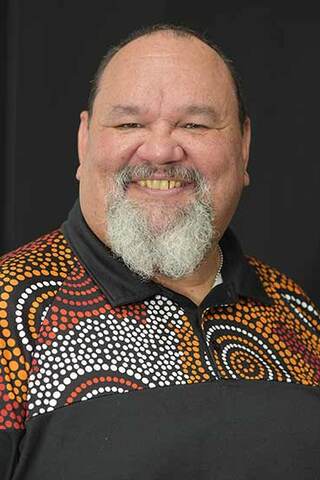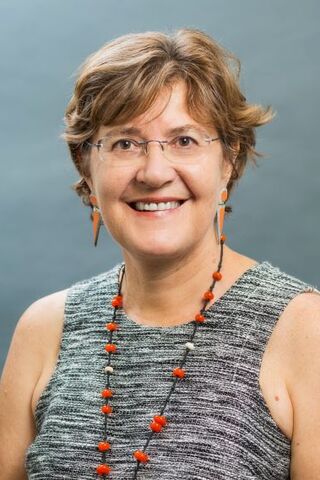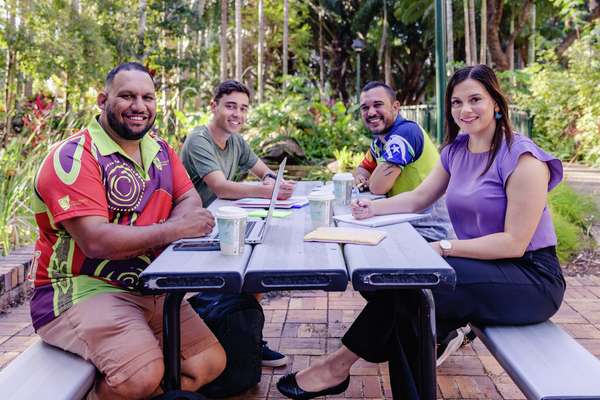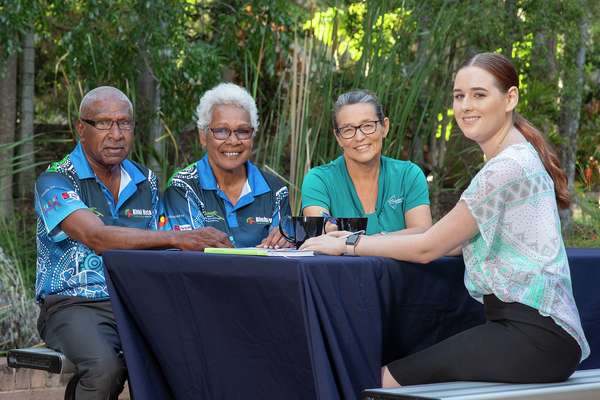To contribute to First Nations People’s self-determination through research governed by practices that value and respect cultural knowledge.
To meet community priorities in health, well-being and preservation of culture through applying social justice principles of Indigenous sovereignty, engagement and leadership.
The Jawun Research Institute (formerly the Jawun Research Centre and Centre for Indigenous Health Equity Research (CIHER) was launched in 2017, as the first Aboriginal and Torres Strait Islander health research centre in North Queensland dedicated to realising Indigenous prosperity, social and economic inclusion and cultural continuity.
The Jawun Research Institute builds on previous research conducted through the north Queensland Empowerment Research Program, Collaborative Research on Empowerment and Wellbeing (CREW) program and Building Indigenous Research Capacity Project with community partners.
The Institute's aim is to conduct engaged, high impact, applied research and innovation as essential components in achieving equitable standards for Aboriginal and Torres Strait Islander health and well-being.
Jawun is a Dyirbal word from the language of the Jirrbal people of Far North Queensland that means a style of weaving and a dilly bag that is unique to Far North Queensland. Jawun translated, refers to the style of weaving used in creating bi-cornual baskets, a basketry design unique in the world. Jawun is an organising metaphor, placing First Peoples language in the centre’s purpose and vision. Like a dilly bag research in community forms a space woven from relationships and forms a space for containing and carrying materials that are useful for social emotional wellbeing, resilience and empowerment.
The Institutes works collaboratively in partnership with community organisations, adhering to cultural protocols and ethics of place, conducting research that applies the principles of:
Jawun represents the Institute's collective purpose and vision and the cooperative hub of like-minded researchers in four main research focus areas:
Email: JRC@cqu.edu.au
Phone: (07) 4930 9955
One of Australia’s greatest health challenges remains the restoration of First Nations’ peoples’ self-determination and wellbeing, lands and governance systems. Jawun’s research responds to priorities identified by First Nations peoples and by organisations who are led by or serve First Nations communities. Engaging with long term research partners to amplify the voice of Indigenous youth in health equity research, the transgenerational nature of the challenges means that research spans an entire life cycle.
Jawun’s multidisciplinary research team and work are located at the interface of Indigenous and Western knowledge systems in a space that is respectful of different cultural worldviews, values and practices. Aligned with the urgent need to create sustainable and tangible improvements with First Nations leaders for Indigenous communities, research goals maximise individual and collective impact by growing strengths focussed Indigenous, qualitative, quantitative, and creative or arts informed research methods. The aim is continuous quality improvement (CQI) and collaborative and participatory research partnerships.
The disaster management and public health programs of research aim to provide avenues for genuine and respectful partnerships with First Nations communities to define and implement preparedness, response, recovery, and sustainable risk reduction measures for disasters and infectious disease outbreaks.
The United Nations Sendai Framework for Disaster Risk Reduction (2015-2030) provides the foundation directives to incorporate First Nations Peoples knowledges in disaster management planning and risk reduction, complimenting scientific knowledge to reduce risk and build resilience.
Disaster management and public health research programs ensure that Indigenous voices and knowledges are collected, retained and integrated int transformational research in disaster management planning and risk reduction strategies to prepare for, cope with and survive emergencies and disasters.
Under the co-direction of Professors Adrian Miller and Janya McCalman, the centre’s local, national and extended international focus is aligned with the Indigenous studies field of research, maintained through networks with research groups, communities, services, government and industry.

Professor Adrian Miller BA, MPH, PhD is Deputy Vice-President Indigenous Engagement, /BHP Chair in Indigenous Engagement, and Co-Director of the Jawun Research Centre and is a recognised expert with the Academy of Sciences. Prof Miller’s strong leadership includes positive collaborative outcomes for Indigenous Australian communities, including the group to which he belongs, the Jirrbal people of North Queensland.

Professor Janya McCalman, BA (Hons), MPH, PhD, is a public health research fellow, and leads the Jawun Community Wellbeing program. Prof McCalman is internationally recognised for her extensive research that enable resilience, empowerment and wellbeing in the interaction between Aboriginal and Torres Strait Islander peoples with schools, workplaces, health services and in other community contexts.
CQUniversity Australia is a trading name of Central Queensland University
ABN: 39 181 103 288
RTO Code: 40939
CRICOS: 00219C
TEQSA: PRV12073

